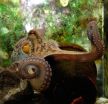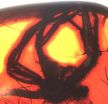(Press-News.org) Can people truly feel the future? Researchers remain skeptical, according to a new study by Jeffrey Rouder and Richard Morey from the University of Missouri in the US, and the University of Groningen in the Netherlands, respectively. Their work (1) appears online in the Psychonomic Bulletin & Review (2), published by Springer.
Although extra-sensory perception (ESP) seems impossible given our current scientific knowledge, and certainly runs counter to our everyday experience, a leading psychologist, Daryl Bem of Cornell University, is claiming evidence for ESP. Rouder and Morey look at the strength of the evidence in Dr. Bem's experiments.
Their application of a relatively new statistical method that quantifies how beliefs should change in light of data, suggests that there is only modest evidence behind Dr. Bem's findings (that people can feel, or sense, salient events in the future that could not otherwise be anticipated, and cannot be explained by chance alone), certainly not enough to sway the beliefs of a skeptic.
They highlight the limitations of conventional statistical significance testing (p values), and apply a new technique (meta-analytical Bayes factor) to Dr. Bem's data, which overcomes some of these limitations. According to Rouder and Morey, in order to accurately assess the total evidence in Bem's data, it is necessary to combine the evidence across several of his experiments, not look at each one in isolation, which is what researchers have done up till now. They find there is some evidence for ESP – people should update their beliefs by a factor of 40.
In other words, beliefs are odds. For example, a skeptic might hold odds that ESP is a long shot at a million-to-one, while a believer might believe it is as possible as not (one-to-one odds). Whatever one's beliefs, Rouder and Morey show that Bem's experiments indicate they should change by a factor of 40 in favor of ESP. The believer should now be 40-to-1 sure of ESP, while the skeptic should be 25000-to-1 sure against it.
Rouder and Morey conclude that the skeptics odds are appropriate: "We remain unconvinced of the viability of ESP. There is no plausible mechanism for it, and it seems contradicted by well-substantiated theories in both physics and biology. Against this background, a change in odds of 40 is negligible."
INFORMATION:
Reference
1. Rouder JN & Morey RD (2011). A Bayes factor meta-analysis of Bem's ESP claim. Psychonomic Bulletin & Review. DOI 10.3758/s13423-011-0088-7
2. Psychonomic Bulletin & Review is the official journal of the Psychonomic Society.
The full-text article is available to journalists on request.
END
How do genes control us? This fundamental question of life still remains elusive despite decades of research. Genes are blueprints for proteins, but it is the proteins that actually carry out vital functions in the body for maintaining life. Diseases such as cancer are not only characterized by altered genes, but also by disturbed protein production. But how is protein production controlled? Researchers of the Max Delbrück Center for Molecular Medicine (MDC) Berlin-Buch of the Helmholtz Association, Germany, have now comprehensively quantified gene expression (the activation ...
The sharp downturn in the real estate market has impacted millions of Americans, and seniors are one of the groups most affected.
This is particularly true of seniors who have so-called "reverse mortgages." This type of mortgage can potentially be a good way for people over the age of 62 to get money out of their homes. But in a market in which so many mortgages are underwater, it can also raise the risk of foreclosure.
Reverse Mortgages
Reverse mortgages are not new. But older homeowners are increasingly turning to them to improve their situations later ...
Jerusalem, May 18, 2011 – In case you thought that octopuses were smart only in guessing the outcome of soccer matches (remember the late Paul the octopus in Germany who picked all the right winners in last year's world cup matches in Johannesburg?), scientists at the Hebrew University of Jerusalem have now shown that not only are they smart, they can make some pretty good moves as well.
Octopuses are among the most developed invertebrates. They have large brains and are fast learners. With eight arms and no rigid skeleton, they perform many tasks like crawling, swimming, ...
Throughout the 1990s, many states revamped their juvenile criminal laws to make it easier for judges to sentence children to adult prison. This was obviously done in an effort to appear "tough on crime" after a number of high-profile and sensational juvenile-offender cases had caused a media and public outcry. What many suspected at the time, however, and what has been proven to be true over time, is that this approach has been a poor solution to a complex problem.
The pendulum is now beginning to swing the other way. A report by the Campaign for Youth Justice ...
A new international Task Force has been set up to promote 'a fair day's work for a fair day's pay' for workers and to develop organisational capacity in lower income countries. The research which found discrepancies between the salaries earned by local and those earned by expatriate aid workers was instrumental in setting up the task force. According to the findings from a jointly funded project by the Economic and Social Research Council (ESRC) and Department for International Development (DFID) an expatriate aid worker will be paid on average four times more (and sometimes ...
Greater awareness of 'specific language impairment' (SLI), a language disorder, is needed to ensure better outcomes for the 3-6 per cent of UK school children affected by this disability. Children with SLI have difficulties with most or all aspects of language including grammar, vocabulary and literacy as well as with short term memory. According to new research funded by the Economic and Social Research Council (ESRC), they also have problems with higher order thinking skills. SLI may have a greater impact on these children than the better know disorder, dyslexia.
"The ...
Irony has hit the health care system. While its goal is to safely heal injuries and diseases, the U.S. healthcare system has created an epidemic of medical errors. Recent studies reveal the physical and financial toll these medical mistakes continue to take on the quality of patient care. While medical malpractice reforms have attempted to curb the damages patients may recover after an injury caused by medical negligence, the health care system still suffers from a lack of incentive for doctors and hospitals to impose and adhere to stricter safety measures. In the meantime, ...
Scientists have used the latest computer-imaging technology to produce stunning three-dimensional pictures of a 49 million-year-old spider trapped inside an opaque piece of fossilized amber resin.
University of Manchester researchers, working with colleagues in Germany, created the intricate images using X-ray computed tomography to study the remarkable spider, which can barely be seen under the microscope in the old and darkened amber.
Writing in the international journal Naturwissenscaften, the scientists showed that the amber fossil – housed in the Berlin Natural ...
The U.S. Supreme Court recently heard oral arguments in a case that has the potential to make it easier for accident victims and their families to bring products liability claims against automobile manufacturers. In Williamson v. Mazda Motor Corp. of America (No. 08-1314), the Court has been asked to decide whether federal safety regulations preempt state-based products liability claims against car manufacturers.
In Williamson, 32-year-old Thanh Williamson died as a result of injuries sustained in a 2002 car crash. Williamson was sitting in the second row seat of a 1993 ...
ATS 2011, DENVER – A Wednesday morning session will explore the inhalational exposures and respiratory outcomes of military deployment to Iraq and Afghanistan. Presenters will review current knowledge on complex inhalational exposures, epidemiologic studies, animal toxicology studies, and clinical lung findings in U.S. military men and women who are returning from Southwest Asia.
D6 "Occupational Lung Diseases in U.S. Military Personnel Deployed to Iraq and Afghanistan" will take place from 8:15 to 10:45 a.m. in the Wells Fargo Theatre Section 1 on the street level of ...

